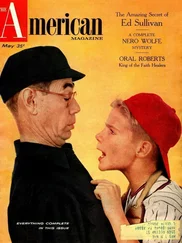Helen Grant - The Vanishing of Katharina Linden
Здесь есть возможность читать онлайн «Helen Grant - The Vanishing of Katharina Linden» весь текст электронной книги совершенно бесплатно (целиком полную версию без сокращений). В некоторых случаях можно слушать аудио, скачать через торрент в формате fb2 и присутствует краткое содержание. Жанр: Триллер, на английском языке. Описание произведения, (предисловие) а так же отзывы посетителей доступны на портале библиотеки ЛибКат.
- Название:The Vanishing of Katharina Linden
- Автор:
- Жанр:
- Год:неизвестен
- ISBN:нет данных
- Рейтинг книги:5 / 5. Голосов: 1
-
Избранное:Добавить в избранное
- Отзывы:
-
Ваша оценка:
- 100
- 1
- 2
- 3
- 4
- 5
The Vanishing of Katharina Linden: краткое содержание, описание и аннотация
Предлагаем к чтению аннотацию, описание, краткое содержание или предисловие (зависит от того, что написал сам автор книги «The Vanishing of Katharina Linden»). Если вы не нашли необходимую информацию о книге — напишите в комментариях, мы постараемся отыскать её.
Pia is determined to find out what happened to Katharina.
But then the next girl disappears…
The Vanishing of Katharina Linden — читать онлайн бесплатно полную книгу (весь текст) целиком
Ниже представлен текст книги, разбитый по страницам. Система сохранения места последней прочитанной страницы, позволяет с удобством читать онлайн бесплатно книгу «The Vanishing of Katharina Linden», без необходимости каждый раз заново искать на чём Вы остановились. Поставьте закладку, и сможете в любой момент перейти на страницу, на которой закончили чтение.
Интервал:
Закладка:

Helen Grant
The Vanishing of Katharina Linden
Copyright © 2009 by Helen Grant
For Gordon
Chapter One

My life might have been so different, had I not been known as the girl whose grandmother exploded. And had I not been born in Bad Münstereifel. If we had lived in the city-well, I’m not saying the event would have gone unnoticed, but the fuss would probably only have lasted a week before public interest moved elsewhere. Besides, in a city you are anonymous; the chances of being picked out as Kristel Kolvenbach’s granddaughter would be virtually zero. But in a small town-well, small towns everywhere are rife with gossip, but in Germany they raise it to an art form.
I remember my hometown as a place with a powerful sense of community, which was sometimes comforting and sometimes stifling. The passing of the seasons was marked by festivals that the whole town attended: Karneval in February, the cherry fair in the summer, the St. Martin’s Day procession in November. At each one I saw the same faces: our neighbors from the Heisterbacher Strasse, the parents who gathered at the school gate every lunchtime, the ladies who served in the local bakery. If my family went out to dinner in the evening we were quite likely to be served by the woman my mother had chatted to in the post office that morning, and at the next table would be the family from across the street. It would take real ingenuity to keep anything secret in a place like that-or so everyone thought.
Looking back on that year, those were innocent days; a time when my mother cheerfully allowed me at the tender age of ten to roam the town unsupervised-a time when parents let their children out to play without once entertaining the horrific notion that they might not return home again.
That came later, of course. My own problems began with my grandmother’s death. A sensation at the time, it should by rights have been forgotten when the true horrors of the following year unfolded. But when it became clear that some malevolent force was at work in the town, public opinion looked back and marked Oma Kristel’s death as the harbinger of doom. A Sign.
What was really unfair about the whole thing was that Oma Kristel hadn’t so much exploded as spontaneously combusted. But Gossip is Baron Münchhausen’s little sister, and never lets the truth get in the way of a good story. To hear the tale retold on the streets of Bad Münstereifel, and especially in the playground of the Grundschule , which I was attending at the time, you would have thought my grandmother went off like a blaze in a Chinese fireworks factory, filling the air with cracks and pops and dazzling flares of colored light. But I was there; I saw it happen with my own eyes.
Chapter Two

It was Sunday, December 20, 1998, a date that will be forever marked in my mental history. The last Sunday before Christmas, the day we were to light the last candle on the Advent crown, the last day of my grandmother’s life, and, as it turned out, the last time the Kolvenbach family would ever celebrate Advent.
My mother, who at that time was one of only three British citizens living in Bad Münstereifel, had never quite come to grips with German Christmas customs. She usually forgot about the Advent crown until the first Sunday was upon us and the only ones left were tatty lopsided efforts stacked up outside the supermarket on the edge of town. This year’s crown was a sad-looking affair with four improbable blue candles squatting uncomfortably on a ring of artificial greenery. Oma Kristel took one look and marched off to get a proper one.
The one she bought was a beauty: a big coronet of dark green foliage interwoven with crimson and gold ribbons and decorated with tiny Christmas baubles. Oma Kristel carried it into our dining room as ceremoniously as though it had been a jar of frankincense for the infant Jesus Himself, and set it down in the middle of the table. My mother’s crown, with the unseasonal blue candles, was relegated to the sideboard and eventually, still unlit, to the trash. If my mother had any opinion about this, she did not express it other than by a slight tightening of the upper lip.
That Sunday a special dinner was being planned. As well as Oma Kristel, we were also expecting my father’s brother Onkel Thomas, Tante Britta, and my cousins Michel and Simon, who had all traveled down from Hannover. My mother, who normally had a robust attitude toward German housekeeping, had worked herself up into a state of frenzy over the cooking and cleaning. Our house was one of those old traditional Eifel houses, constructed of a kind of half-timbering called fachwerk; wildly picturesque to look at, such buildings are low and dark inside, with tiny windows that admit only the stingiest amount of daylight and make the cleanest rooms look dingy.
The menu proved to be an equal source of stress; Onkel Thomas was a man of very plain tastes and would as soon have thought of eating witchetty grubs as something non-German. My mother tormented my father a little beforehand with threats to serve up curry and chips, but in the end the prospect of Onkel Thomas pushing the dinner around the plate with a fork like a pathologist investigating a stool sample was simply too much. She determined to make Gänsebraten , roast goose with a stuffing of Leberwurst , muttering, “Anything with Leberwurst in it is sure to be a hit with Thomas and Britta.”
While my mother was putting the finishing touches to the goose, and my father was uncorking the wine, Onkel Thomas and his family arrived. Onkel Thomas almost blotted out the light as he came through the front door, his shoulders filling the frame. Tante Britta, a tiny woman with sticklike limbs and a birdlike swiftness in her manner, followed him, and behind her came Michel and Simon.
In Germany, it is considered proper that a child should go and shake hands when meeting someone; I hated doing this, and hung back, but Oma Kristel pushed me forward with a well-timed poke in the back. Reluctantly, I held out my hand to Onkel Thomas, who enfolded it in his enormous fleshy paw.
“Hallo, Pia.”
“Hallo, Onkel Thomas,” I replied dutifully, willing him to let go of my hand so I could wipe my fingers surreptitiously on the leg of my trousers; Onkel Thomas always had clammy hands.
“You’ve got bigger,” he commented in his hearty way.
“Um-hmm,” I murmured, then with sudden inspiration, “I must go and help Mama in the kitchen.”
With some relief I escaped into the kitchen, where condensation was running down the tiny windowpanes and my mother was moving about frantically through the steam with rather the effect of someone stoking the boiler in the engine room of a steamship. She fixed me with a steely gaze.
“Out,” was all she said.
“Mama, Onkel Thomas and Tante Britta are here.”
“Oh, God,” was my mother’s encouraging remark. She shooed me out of the kitchen and back into the living room, where I discovered Michel eating the last of the chocolates that St. Nicholas had brought me on December 6. The ensuing rumpus lasted until dinner was ready, and my mother emerged from the kitchen with a harried expression to tell us that we could take our places at the table. She regarded Michel’s red face, blotchy with crying, and her upper lip tightened again, but she said nothing. Discretion is the better part of valor; she went back into the kitchen and finished carving the goose.
Читать дальшеИнтервал:
Закладка:
Похожие книги на «The Vanishing of Katharina Linden»
Представляем Вашему вниманию похожие книги на «The Vanishing of Katharina Linden» списком для выбора. Мы отобрали схожую по названию и смыслу литературу в надежде предоставить читателям больше вариантов отыскать новые, интересные, ещё непрочитанные произведения.
Обсуждение, отзывы о книге «The Vanishing of Katharina Linden» и просто собственные мнения читателей. Оставьте ваши комментарии, напишите, что Вы думаете о произведении, его смысле или главных героях. Укажите что конкретно понравилось, а что нет, и почему Вы так считаете.





![Майкл Муркок - Спящая волшебница / The Sleeping Sorceress [= Участь Белого Волка, Рыцарь Хаоса, The Vanishing Tower]](/books/327544/majkl-murkok-spyachaya-volshebnica-the-sleeping-sorc-thumb.webp)






